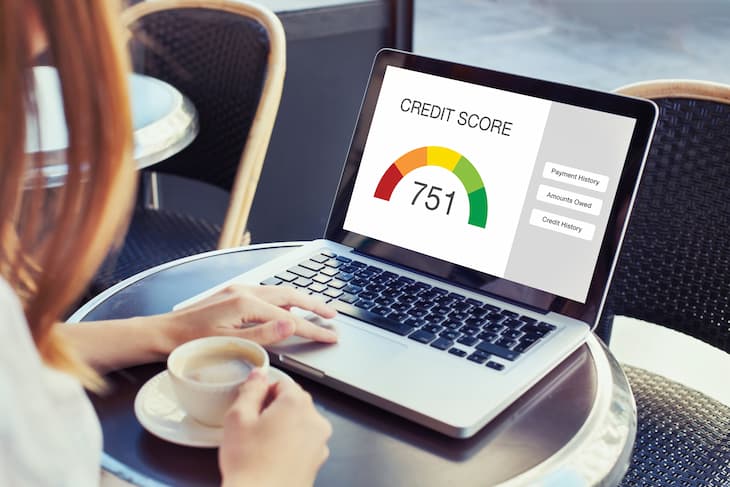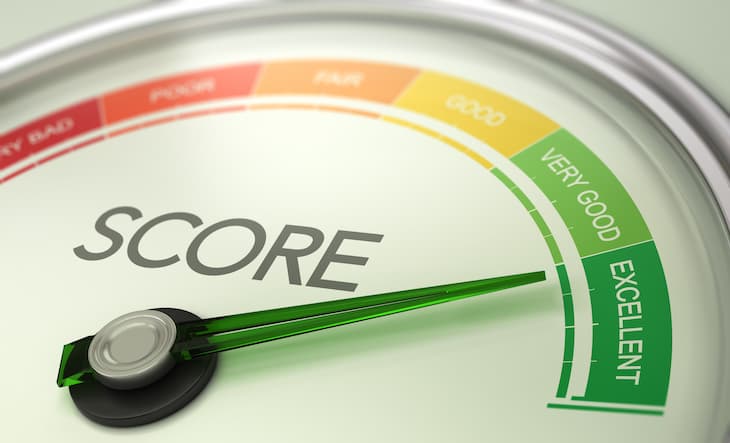Disclosure: Articles may contain affiliate links. As an Amazon Associate, we earn from qualifying purchases (at no additional cost to you). See our full disclosure here.
Last updated on November 30th, 2022 at 12:27 pm
Like it or not, your credit score is important. It tells creditors how responsible you’ve been with your past debts. Creditors then use this information to gauge your financial health. Having a great score benefits you in several ways, including easy approval of a lease for a house or apartment and lower interest rates on your loans and credit cards. In addition, you could save money on security deposits for services and utilities. Your insurance rates can even be lower with good credit.
With all of these benefits, it’s clear that maintaining a good credit score is a must. If you want to build your credit and keep your credit in good standing, here are five tips to consider.
How to Build Your Credit Score
Always Pay Your Bills on Time
The average millennial credit score is 680, and one way to maintain or increase this number, is to pay your bills on time. This doesn’t just mean your credit card bills or loans, like auto and student loans or mortgages. Instead, it applies to all your financial obligations, including parking tickets and library fees. If you don’t pay on time, the overdue payments may be reported to the credit bureau, negatively affecting your credit score. So, be sure to pay all of your bills promptly to maintain a great score.
If you’re struggling to keep up with payments, consider setting up an automatic payment system. This way, funds will automatically be sent to the biller, and you’re sure to avoid any missing payments on their due dates.

Find Out More About Your Credit Score
The best way to build your credit score is to understand what’s factored in when your score is calculated. With this in mind, it’ll be a lot easier to maintain or build your credit score.
Here are five important details the credit bureaus take into account when calculating your credit score:
- Level of debt
- Payment history
- Credit age
- Recent credit
- Mix of credit
Loans like auto loans and personal loans are factored in when calculating your credit score. Credit cards that are considered unsecured debt are also included.
Manage Your Debt
You should never take out numerous loans simultaneously while trying to build your credit. Creditors will see this as a sign of credit greediness. This applies to both conventional loans and credit cards, with the excess debt reducing your credit score. Instead, you should first carefully assess your needs, and only take out a loan that’s truly needed.
Ensure Your Old Credit Cards Remain Open
Continually applying for new credit cards isn’t recommended, and this also applies to closing them. This is why you shouldn’t be too quick to close an old credit card, even if you’re barely using it. These cards are still credit lines reporting to the credit bureaus and are an excellent source of your past financial transactions. By keeping your credit cards open, you reduce your overall credit utilization, helping to maintain a good credit score.
If you close your old credit cards, all the history of the closed account will be removed from your credit report. Due to this lost credit history, your credit history becomes a lot shorter, resulting in a decrease in your credit score. That’s why it’s usually best to keep your credit lines open to show a richer credit history.

Avoid High Credit Card Balances
A healthy Credit Utilization Rate (CUR) is essential to ensure you maintain a good credit score, and this is achieved by having a high credit limit and low balance. The purpose of a CUR is to show the amount of credit you have and how much credit is available to you across your different credit cards. The ideal CUR should be 30%, and anything greater than this can adversely affect your credit score. Other experts even recommend keeping the CUR as low as 10% to maintain a great credit score.
This means if you have a credit limit of $2,000, your combined credit card balance shouldn’t exceed $600. Otherwise, your CUR will be greater than 30%. Even if you always pay the balance on time, your credit score will still be negatively affected. The best way to stay under this ratio is by always paying off credit card balances promptly.
Conclusion
Maintaining a good credit report comes with so many benefits, including giving you access to loans and credit cards. We’ve highlighted some tips here to help you ensure you can build your credit and then maintain that excellent credit standing. How will you put these ideas into practice in your finanacial life?
Also read —
Get Your Truly FREE Credit Report and Credit Score Online
Teaching Kids About Money — 7 Smart Tips
Leave a Reply